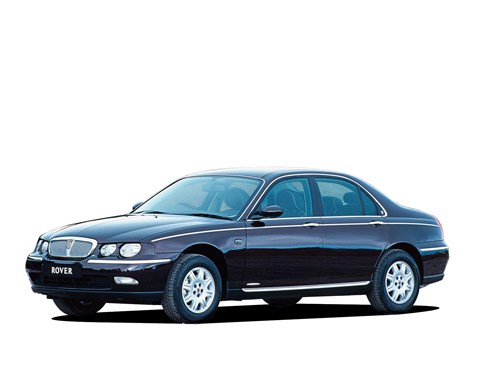► In 1994, BMW bought Rover for £800m
► By 1999, it was suffering significant losses
► We look back at what happened
Rover didn’t die on BMW’s watch: a canny exit deal and the Phoenix Four saw to that. But the greatest hope for Britain’s last volume car maker was ironically extinguished during the six years it was owned by the German powerhouse, one which benevolently pumped in £3.4bn in a failed bid to buy into the mainstream.
The theory looked sound: BMW calculated it needed to make 1.8 to 2m cars annually to remain competitive and stay independent. Chairman Bernd Pischetsrieder offered British Aerospace £800m for cash-starved Rover in 1994. He believed the brand could rally and compete at the top of each segment, with refined, comfy cars worlds apart from sporty BMWs. The move also negated the risk of diluting BMW’s status with a car below 3-series.
But the odds were stacked against BMW. Europe’s market was plagued by overcapacity and a price war. And the Germans killed Rover with kindness, moving too slowly on integration. CAR in 1996 exposed the cultural splits between Munich and the Midlands, and the failure to swiftly pool engineering and purchasing. Unusually, BMW also made bad product calls: the 75 saloon was to be the first new Rover, not the 400 replacement codenamed R30 with bigger volume potential to fill Longbridge.

‘Overshadowing everything was this 90-year-old bottomless pit,’ write Chris Brady and Andrew Lorenz in their book End of the Road. Stuck at two-thirds of its 450,000 capacity and with 14,000 workers, it needed fresh cars fast, but 15 months after the acquisition BMW still hadn’t inked in Mini or R30 production.
A strengthening pound made a bad situation terrible. Rover’s exports became hideously expensive, while cheap imports ate UK market share. By 1999, BMW was losing £1m a day on currency costs alone. The end was nigh, and BMW paid Phoenix to take on Rover a year later.
Pischetsrieder paid with his job; his successor Joachim Milberg concluded ‘the Rover brand was not strong enough to perform the tasks intended for it’. In 2014, BMW posted records for the fifth year running. More than 300,000 Minis were built at Rover’s former Cowley plant, and the group broke the 2m sales barrier. The 1-series and front-drive are reality. And, of course, BMW remains independent.
Read more industry news